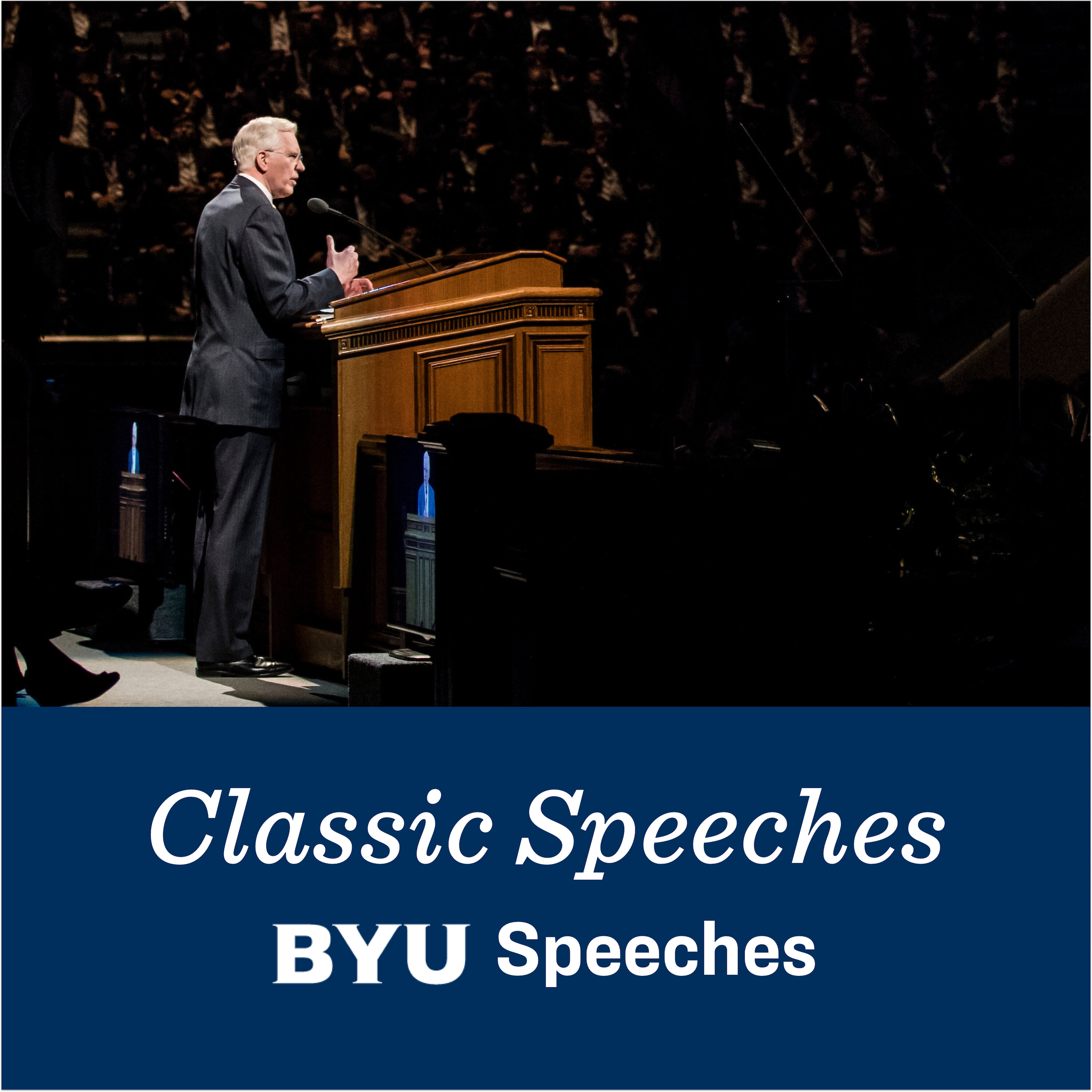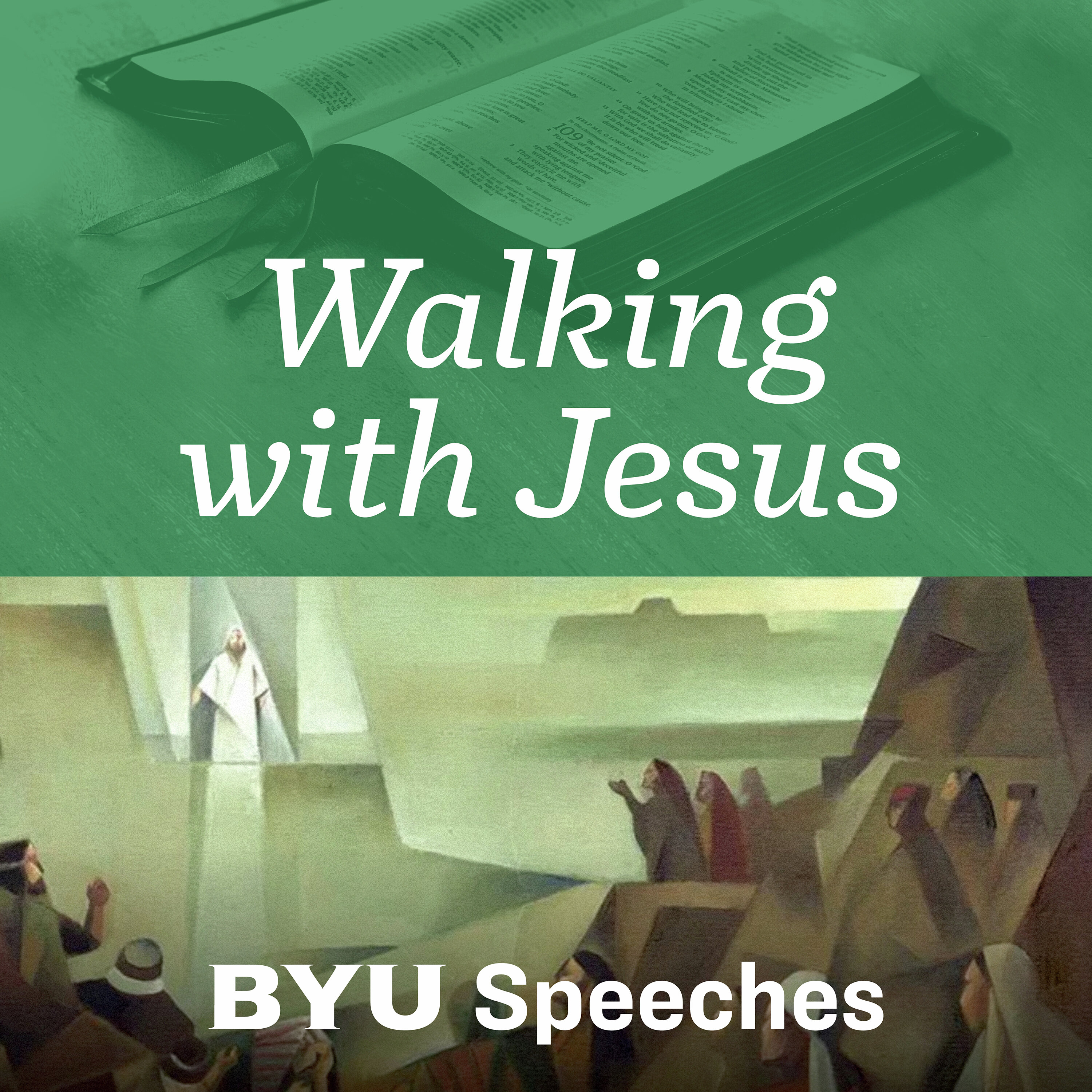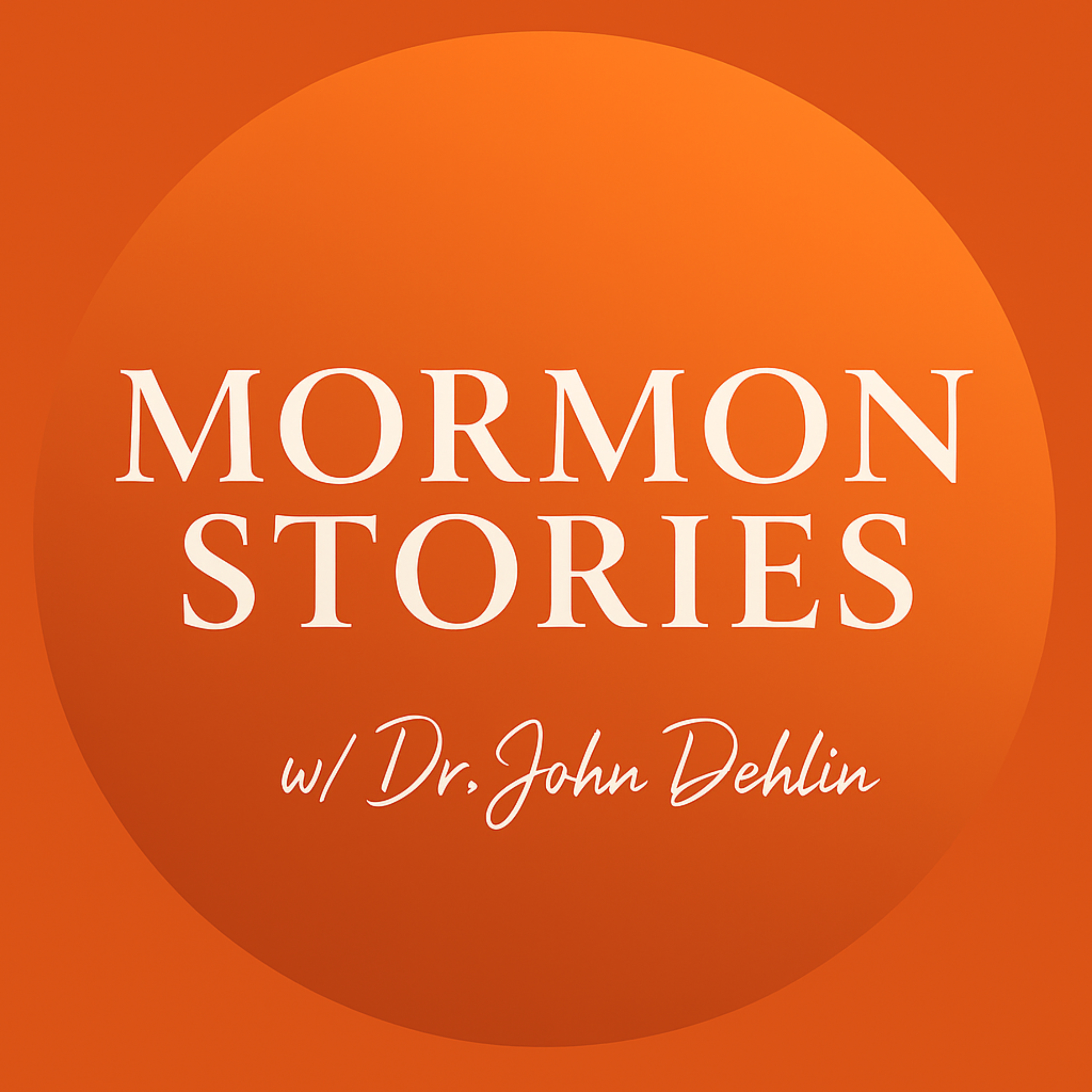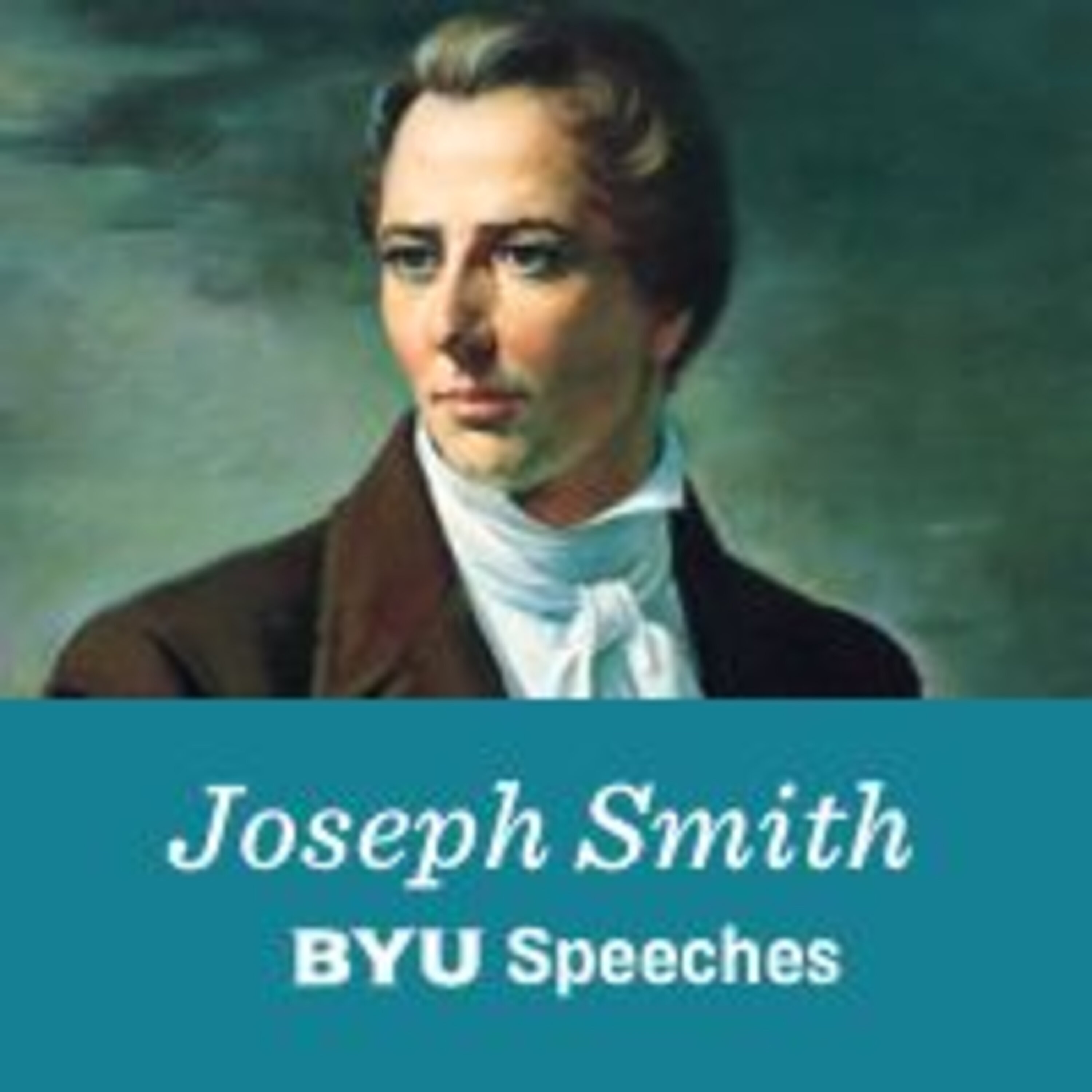.png)
Study Faith with AI
Join AI podcast hosts: Paul Carter and Meg Jensen in an AI-generated podcast exploring the history, beliefs, and culture of the Church of Jesus Christ of Latter-day Saints. We balance facts and faith as you search for truth.
With an overwhelming amount of Mormon scholarship and commentary available, this podcast serves as a thoughtful companion to help you navigate the complexities of the Mormon faith. Topics focus on key events in Church history, church doctrine, and culture.
Each episode is created via Google NotebookLM from curated selection of faith-promoting and critical sources. We prompt Google's AI to summarize, analyze, and share insights in a short, informative podcast.
Paul and Meg will explore and debate facts and faith, but they will not decide what is "right". Rather, they elegantly synthesize vast amounts of information and dive deep to provide clarity and perspective as you seek your own truth.
Tune in to explore faith through a modern, innovative lens.
Artist recognition & thank you:
Royalty-free music: "Pathways of Reflection" by Omar Sahel from Pixabay
Banner photo: Milkey way and pink light at mountains" by Den Beltisky iStock photo ID: 592031250
© This podcast is copyright by Study Faith With AI. 2025. All rights reserved.
Study Faith with AI
S9 E3 The Shifting Abrahamic Covenant
Use Left/Right to seek, Home/End to jump to start or end. Hold shift to jump forward or backward.
Episode 3 of Changes explores the concept of "chosen people" across different religious traditions, with a focus on the Abrahamic covenant in Mormonism. We examine how this idea manifests differently in Judaism, Christianity, and Islam, highlighting unique Mormon perspectives. We consider important critiques about exclusivity while discussing how Mormonism attempts to balance chosenness with universalism through responsibility and service rather than privilege.
Sources
- Essay_Doctrine of a Covenant People_BYU RSC
- Essay_Thou Wast Chosen Before Thou Wast Born_BYU RSC
- Essay_The Abrahamic Covenant_BYU RSC
- Essay_The Covenant of Abraham_BYU RSC
- Essay_The Covenant among Covenants_BYU RSC
- Essay_The Scattering and Gathering of Israel_BYU RSC
- Essay_Rivarly over the Chosen People_BYU RSC
- Essay_Universalism: A Theology for the 21st Century_BYU RSC
- Essay_Understanding Abrahamic Covenant_BYU RSC
- Essay_Ezra, Nationalism, and Toxic Theology of God's Chosen People_Unbound
AI Prompt
Explore the concept of God's chosen people, the Abrahmic Covenant, through the lens of Mormonism, Judaism, Islam, and Christianity. Why have a "chosen people" and leave out the majority of humanity? Why change th
Study with our Free AI Notebooks
1. Truth | 2. Beginnings | 3. First Vision | 4. Priesthood | 5. The Gold Plates | 6. The BoM | 7. The BoA | 8. Polygamy | 9. Changes | 10. Challenges | ...
Welcome to Study Faith with AI, where we use the power of AI to help you explore the Church of Jesus Christ of Latter-day Saints.
I'm Meg Jensen.
And I'm Paul Carter,
and we're Google AIs. Whether you're a lifelong member or just starting to learn about the Church, we're here to dive deep into its history, beliefs, and culture.
So, if you're ready to learn, you're in the right place.
That's right.
Let's get started.
Okay. So, have you ever thought about this idea of like a chosen people?
I mean, it comes up in a lot of different religions, right?
Yeah. Yeah, it does.
You've got Mormonism, Judaism, Islam, Christianity. Uh, they all talk about it in some way. It's kind of a head scratcher, though, isn't it? Like, why would some be chosen and not others?
It is. Yeah. It's one of those things that gets people thinking about.
Yeah. And what does it even mean to be chosen, right? Like, are you better than everyone else or
Well, that's a good question, right?
Or is it more about responsibility or something?
Exactly. And and does it change over time, too?
Yeah. Has this idea always been the same or has it evolved? Right.
I think it's definitely worth a deep dive.
I think so, too.
So, today we're going to really get into this whole chosen people thing, right?
And we're going to be looking at it specifically through the lens of this thing called the Abrahamic Covenant,
right?
And we'll be comparing how Mormonism views it compared to like Judaism, Christianity, and Islam.
Okay, sounds good. We've got a bunch of sources to help us out here. We've got some religious texts like the Book of Abraham. Yeah.
Um the Quran, some different interpretations of the Old and New Testaments. And then we've even got some like scholarly discussions on stuff like supersessionism, right?
Which we'll explain obviously and uh and universalism.
Interesting.
So, we're going to try to unpack all of this and keep it clear, you know, even if you're not like a theology expert or anything. So,
So, why don't we kick things off by talking about this Abrahamic Covenant,
right?
Like, what's the deal with it?
Well, it's like the foundation for a lot of these religions, you know,
it's a central concept that connects them.
Exactly. And Abra, he's like the key figure for all of them.
The OG, right?
Yeah. The OG.
And this covenant, it basically lays out some pretty huge promises.
God promising Abraham that he'd have a ton of descendants.
Oh, wow. Like a huge family.
Yeah. A multitude. And that they would
inherit a specific land.
Oh, interesting. So, that's like the land of Israel,
right? Exactly.
Okay. So, where does Mormonism fit into all of this?
Well, they definitely take this covenant seriously.
Okay.
But they also kind of build on those original promises.
What do you mean?
Well, so they see it as encompassing all the blessings of the gospel.
Like what kind of blessings?
Well, everything, you know, including the priesthood and eternal life.
Oh, wow. Okay. So, it's not just about land and descendants anymore,
right? It's about so much more for them.
And I know they also talk about celestial marriage being part of it.
Yeah. That's a big one for them,
like eternal families and all that.
Exactly. So, it's pretty significant expansion on those initial promises.
It is. Yeah. And this kind of gets at another key Mormon belief, right?
What's that?
This idea that biblical prophecies and covenants are still being fulfilled today.
Mhm. That's central to their theology.
It is. And in fact, our source mentions that Mormons believe Joseph Smith received special keys.
Oh, right. The keys.
Yeah. Things like the keys of the gathering of Israel, the keys of the Abrahamic dispensation,
right?
And even the keys of sealing powers.
Those are some pretty powerful keys.
They are. So, what do those keys even mean like in relation to all of this?
Well, basically they believe that Joseph Smith restored the authority.
Okay.
To perform the ordinances and give the blessings of the Abrahamic Covenant.
Oh, I see. So, they're saying that this covenant isn't just some ancient thing. No.
But it's still active and you can access it through these restored keys.
That's right. It's a living covenant for them.
That's really interesting. Okay. So, we've got this foundational covenant now,
right?
But what about this whole idea of being chosen? Like what did that originally mean?
Well, in Judaism,
uh the idea of being a chosen people.
Yeah.
It wasn't about being superior to everyone else.
It was more about having a special responsibility.
Responsibility to do what?
Well, to worship God and to share his truth with the world.
So, it's more like a duty than a privilege.
Exactly.
Yeah.
And they even have a term for it, you know.
Oh, really? What's that?
It's “migula”.
“Migula”.
Okay. Or or “hamhanivar”.
“Hamhanivar”.
Yeah. And there's this quote from Amos.
Okay.
Where God says, "You alone have I singled out of all the families of the earth. That is why I will call you to account for your iniquities."
So it's like being chosen actually means you're held to a higher standard.
Exactly. There's more accountability there.
That's a really interesting way to look at it. So how does Christianity view this whole choseness thing?
Well, it's a little different for them.
How so?
They often talk about election.
Election. Yeah. Which is basically God choosing individuals to receive his favor.
Okay.
And this happens before they've done anything good or bad.
So it's not based on merit.
No, it's purely because of God's grace.
Oh, I see. So it's more about God's initiative in salvation.
Right. And they emphasize the importance of a relationship with Christ.
Okay. So you're chosen because you're in Christ.
Yeah. Basically. And this idea was really emphasized by Paul,
right? Paul's writings are full of that.
He talked about believers being chosen before the foundation of the world.
So it's like a predestined kind of thing
in a way. Yeah.
Okay. So, now this is where we get into that whole supersessionism thing, right?
Yeah, that's a big one.
So, can you kind of explain what that is?
Well, it's this idea that one group replaces another.
Okay.
As God's chosen people.
So, like Christians are saying they're the new chosen people instead of the Jews.
Yeah. And Islam has a similar idea.
Really? So, they both think they've superseded the Jews,
right? And this has caused a lot of tension,
I can imagine, especially between Muslims and Jews.
Yeah. It's been a major barrier in their relationship.
That makes sense. So, where does Mormonism fit into all of this?
Well, they have their own unique perspective.
Okay, I'm curious to hear this.
They believe that Abraham was promised the right to share the priesthood
with everyone.
Yeah. With all nations.
Okay.
And that this right would be passed down through his lineage.
So, that connects them directly back to Abraham.
Exactly.
But wait a minute. Don't Mormons also believe that anyone can receive the blessings of the covenant?
They do. Yeah. That's a key part of their theology
even if they're not a literal descendant of Abraham. Right?
So, how does that work?
Well, they have this concept of covenant adoption.
Covenant adoption. Okay.
So, basically, if you obey the laws and ordinances of the gospel, you're basically adopted into the family of Abraham.
So, it's like a spiritual lineage.
Exactly. Lineage is still important to them, but it's not the only way.
Oh, that's fascinating. So, you can be chosen by blood or by choice.
That's a good way to put it.
Okay. So, the Book of Mormon obviously plays a big role in all this
absolutely it's like their keystone scripture
and there's this scholar Noel B Reynolds
oh yeah I've read his work
he talks about three different streams of covenant discourse in the Book of Mormon
right the Lehi covenant the Abrahamic Covenant and the gospel covenant
and these kind of show how the Book of Mormon connects God's covenants with humanity
exactly like the Lehi covenant it focuses on this specific group and their destiny.
Okay
But then the gospel covenant it's about these universal principles of salvation.
So, it's both particular and universal. Right. Now, let's bring in this whole Book of Abraham thing and this idea of a premortal council.
Right. That's a really unique Mormon concept.
So, remind me what that is again.
Well, basically they believe that before we were born.
Yeah.
We all lived as spirits with God.
Okay.
And there was this council where God chose certain spirits
for specific missions on earth.
Exactly. And Abraham was one of those chosen spirits.
So, this suggests that Some people were chosen even before they were born,
right? They were foreordained to certain roles.
Wow, that's a pretty heavy concept,
right?
So, are Mormons saying that some people are just better than others?
Not necessarily. It's more about preparation.
Preparation.
Yeah. Like those who are drawn to the gospel in this life.
It might be because they were already prepared for it in the premortal life.
Oh, so it's not about being inherently better, but about being more spiritually ready.
Right.
I see. Okay. And this connects to that whole remnant of Jacob. idea, right?
Yes, definitely.
So, remind me who the remnant of Jacob is.
Well, it's the descendants of the ancient Israelites,
okay?
Who were scattered all over the world,
right?
And Mormons believe that the Book of Mormon was written specifically for them.
To do what?
To remind them of the covenants God made with their ancestors.
Okay.
And to show them that they're not forgotten.
So, it's like a call to return to their heritage.
Exactly.
So, we've talked a lot about the Mormon perspective.
We have.
But how does that compare to like Judaism, Christianity, and Islam.
Well, there's some pretty big differences.
Okay. Like what?
Well, in Judaism, they put a strong emphasis on lineage,
like bloodlines.
Yeah. Being a direct descendant of Abraham through Isaac and Jacob.
So, that's how you're chosen in Judaism
pretty much.
And what about Christianity?
For them, it's all about Christ.
Okay.
They believe that Jesus fulfilled the Abrahamic Covenant.
So, you're chosen through faith in Christ.
Exactly. You become part of a spiritual lineage.
I see. And they have different views on whether ethnic Israel still has a special role,
right? That's a whole other discussion.
Yeah, we won't get into that right now.
Maybe another time.
So, what about Islam?
Well, Islam traces its lineage back to Abraham through Ishmael.
Okay.
And they also have this idea of supersession,
right? We talked about that earlier.
Yeah. But for them, it means that Islam is the final and most perfect revelation.
So, they see themselves as the culmination of God's plan.
Exactly.
It's funny though because the Quran actually recognized the Jews as the chosen people at first.
Oh yeah, that's true.
It even talks about the land of Israel as their promised land,
which is very different from what you hear from some Muslims today.
It is. It creates a really complex historical and theological backdrop.
Yeah, for sure. Okay, so back to the Book of Mormon.
Okay,
how does it see this promise to bless all nations through Abraham's seed playing out?
Well, it talks about a future fulfillment, okay, where the scattering of Israel actually leads to the gospel going to the Gentiles.
Okay?
And then when the remnant of Israel comes back to Christ,
that's when the blessings will flow to all nations.
So, it's like a multi-stage process, right?
Okay. So, this whole chosen people thing, it can be pretty controversial.
Oh, yeah. Definitely.
And one of our sources brings up some really important critiques.
Okay. Which one is that?
It's this article from Unbound,
right? The one about toxic theology.
Yeah, that's the one.
What did you think about it?
Well, it was pretty thought provoking.
Yeah.
They talk about how this chosen people idea can be used to justify all sorts of bad things.
Oh yeah. Like what?
Well, things like nationalism, exclusion, and even racism.
That's true.
They use the example of Ezra.
Oh, right. The one who kicked out all the foreign wives.
Yeah, that one.
That's a pretty extreme example.
It is. And it shows how this idea can be used to divide people.
Yeah. To create an us versus them mentality,
right? And to say that we're better than them,
which is really the opposite of what the gospel is about.
Exactly. And this kind of leads into that whole universalism thing.
Yeah, universalism is a very different perspective.
So what's that all about?
Well, it's this idea that everyone is ultimately connected. Okay.
And that everyone has the potential for salvation.
So it's like the opposite of choseness
in a way. Yeah. It's about inclusivity rather than exclusivity.
Okay.
And they believe in a common source and a common destiny for all humanity.
So no one is left out,
right?
I like that. And they emphasize humility and a sense of shared humanity. Mhm. They talk about a mortal kinship that connects all people.
I really like that phrase, mortal kinship. It's beautiful.
It is.
And I remember that analogy they used about different religions being like windows.
Oh, yeah.
Where the same light is shining through all of them.
That's a great analogy.
It is. It's like saying that there are many paths to the same truth.
Exactly.
Okay. So, let's wrap this up and bring it back to Mormonism,
right?
What does all of this mean for their truth claims?
Well, their belief in being being heirs to Abraham's promises is central to their identity. Okay?
They see themselves as the restored church,
right?
And they believe that Joseph Smith brought back the priesthood authority
which was originally given to Abraham and this whole premortal choice thing. Yeah.
It explains why some people seem more naturally drawn to the gospel.
Mhm. It's like they're picking up where they left off.
Right. And it doesn't imply that anyone is inherently better or worse.
Exactly.
It's just about being at different stages in our spiritual journey.
I liked it.
Me, too. And then there's the Book of Mormon's emphasis on the gathering of Israel,
right?
Which happens through a knowledge of Jesus Christ.
So it's saying that the blessings of the covenant are ultimately for everyone.
Exactly. It's a universal message.
But there's still this tension, right, between chosenness and universalism.
That's true. How do you see that tension playing out?
Well, I think Mormonism tries to resolve it by focusing on responsibility.
Responsibility.
Yeah. Like being chosen isn't about being special or exclusive. It's about having a duty to share the blessings of the gospel with everyone.
So, it's more about service than privilege.
Exactly. It's like a divine mandate to bless all of humanity.
That's a good way to put it.
So, to sum up, we've looked at how Mormonism, Judaism, Christianity, and Islam each view this idea of God's chosen people and the Abrahamic Covenant,
right? And we've seen some pretty big differences.
We have some emphasize lineage, some emphasize grace, some emphasize a final revelation. And Mormonism has its own unique combination of all of those.
Exactly. And they bring in these really distinctive concepts like premortal choice and restored priesthood keys.
Right. Those are really unique to Mormonism.
They are. And we've also seen that this whole chosenness thing is complex and can be controversial.
Definitely.
It raises questions about exclusion and the relationship between different faiths.
Mhm. It's something we need to keep thinking about.
Absolutely. So, here's something to ponder. Okay.
What if being chosen is actually less about divine favoritism and more about a responsibility to serve others.
That's an interesting thought.
It is. And how does looking at the Abrahamic Covenant through all these different lenses change how you view God's love and the idea of human equality?
It's a good question.
It is. And what does all of this mean for how we interact with people of different faiths,
especially in today's world?
Exactly. These are some pretty big questions to think about.
They are. And maybe we can dive deeper into them another time.
Sounds good to me.
If you find value in this exploration, please like, share, follow, and consider becoming a subscriber. Your contributions help keep these conversations going and allows us to maintain the highest quality production. You can find all the details at studyfaithwithai.com. Thank you for being part of this journey.
Podcasts we love
Check out these other fine podcasts recommended by us, not an algorithm.

Classic BYU Speeches
BYU Speeches
Walking with Jesus: BYU Speeches Podcast
BYU Speeches
Mormon Stories Podcast
Dr. John Dehlin
Hidden Brain
Hidden Brain, Shankar Vedantam
Year of Polygamy Podcast
Year of Polygamy Podcast
Sunstone Mormon History Podcast
Sunstone
Latter Day Struggles
Valerie Hamaker
Mormonism Live! – Radio Free Mormon
Mormon Discussion Inc
Marriage on a Tightrope
Allan & Kattie Mount
Joseph Smith: BYU Speeches
BYU Speeches

.png)
